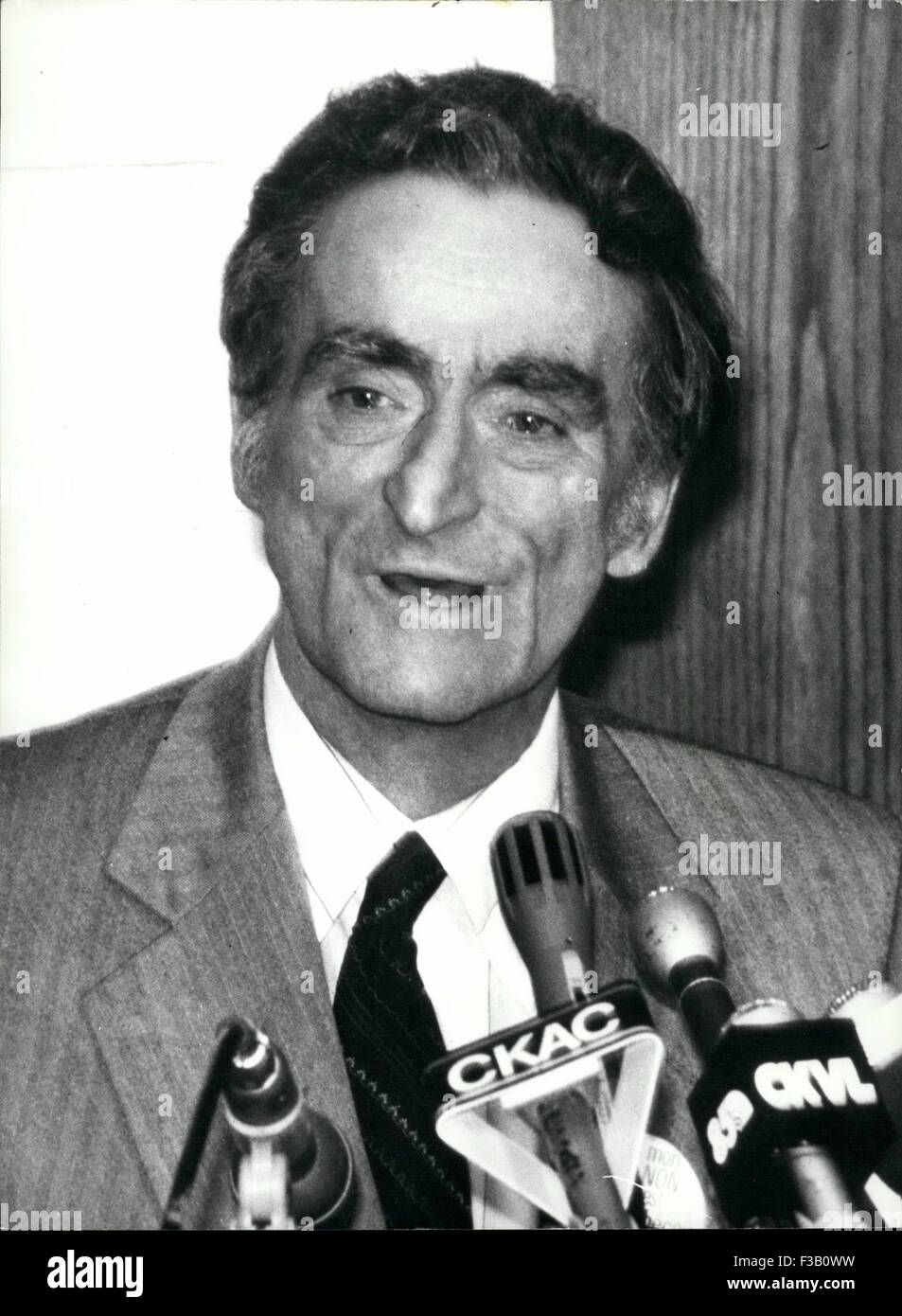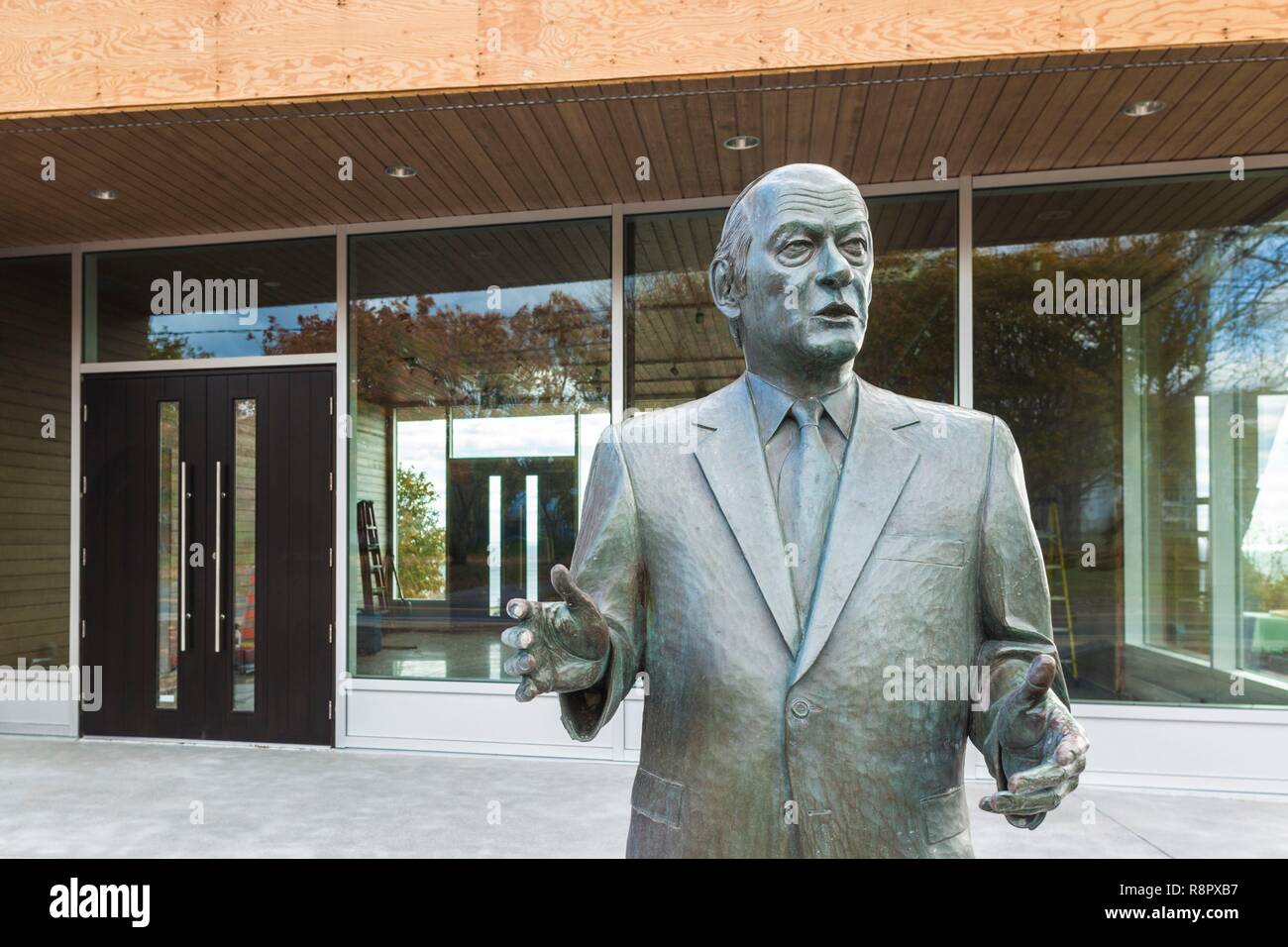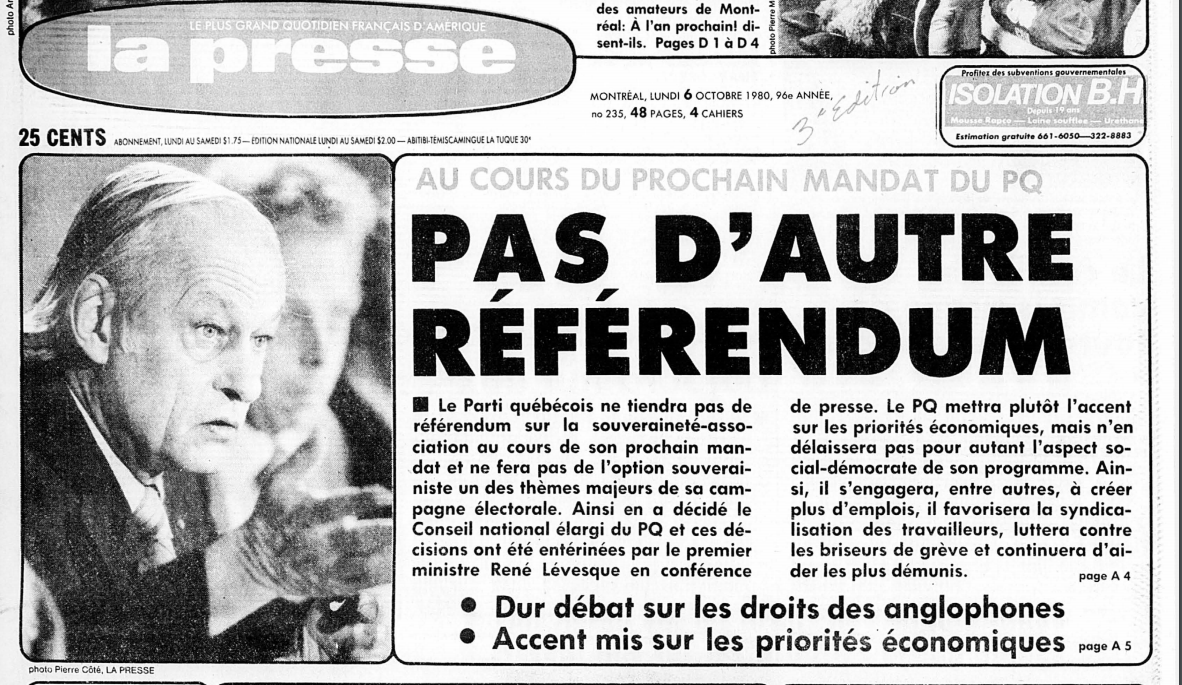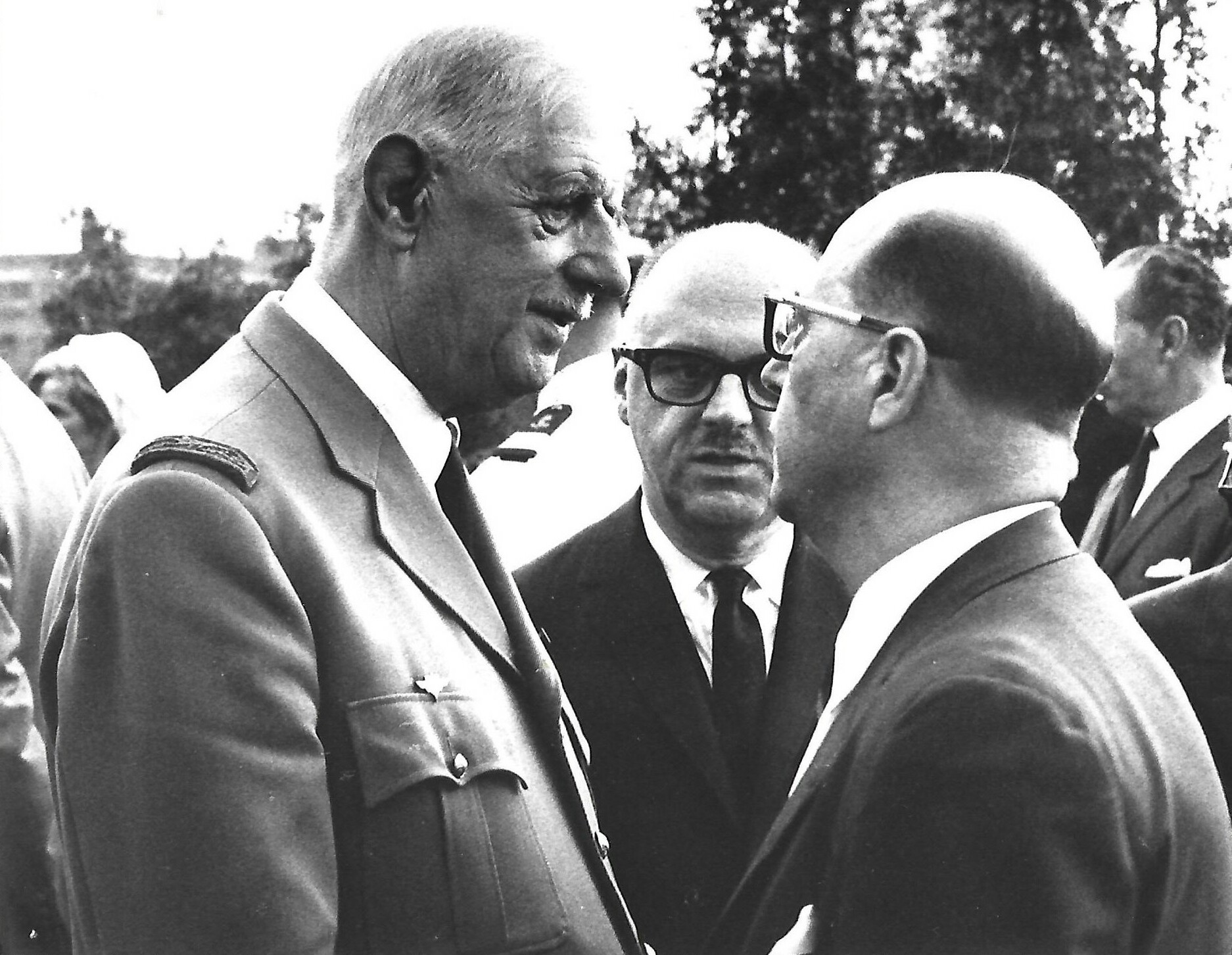
When considering the province of **Quebec** and its ongoing pursuit of **sovereignty**, one name inevitably rises to prominence: **René Lévesque**. Born on August 24, 1922, in the small town of Campbellton, New Brunswick, Lévesque emerged as a transformative figure in the political arena of Quebec. His evolution from a passionate young journalist to the esteemed premier of Quebec is a captivating story that reflects his deep commitment to the province and its people. Throughout his career, Lévesque championed the cause of Quebec nationalism, advocating for the rights and identity of Francophones in a predominantly English-speaking Canada. His vision and leadership played a crucial role in shaping the political landscape of Quebec, leaving a lasting impact that continues to resonate today. Join us as we explore the life, achievements, and enduring legacy of this extraordinary leader who dedicated his life to the pursuit of Quebec’s sovereignty and cultural identity.
Early Life and Education

Roots in Gaspésie
René Lévesque’s early life was deeply influenced by the breathtaking landscapes and vibrant culture of **Gaspésie**, a region located in eastern Quebec. Growing up amidst the rugged beauty of the coastline and the majestic mountains, Lévesque developed a profound appreciation for storytelling and the power of words. This formative environment not only nurtured his creativity but also instilled in him a sense of identity and purpose that would later play a crucial role in his career. The rich traditions and the unique experiences of Gaspésie would become a wellspring of inspiration for Lévesque, shaping his worldview and his approach to communication throughout his life.
Academic Pursuits at Laval University
Following his graduation from high school, Lévesque made the pivotal decision to enroll at **Laval University** in Quebec City. Initially, he embarked on a path to study law, believing it would provide him with a solid foundation for a successful career. However, as he delved deeper into his studies, he discovered a burgeoning passion for journalism that ultimately redirected his ambitions. Embracing this newfound interest, Lévesque began working as a part-time journalist, gaining invaluable experience and honing his skills in writing and reporting. These early journalistic endeavors not only laid the groundwork for his future career but also equipped him with the tools necessary to become a compelling communicator and a powerful advocate for the causes he would champion later in life.
Journalism: The Launchpad for a Political Career

War Correspondent and Beyond
During the tumultuous years of **World War II**, Lévesque took on the role of a reporter for the U.S. forces stationed in Europe. This pivotal experience not only sharpened his journalistic abilities but also provided him with a firsthand look at the intricate and often chaotic nature of global politics. The war exposed him to the realities of conflict, diplomacy, and the human condition, shaping his worldview in profound ways. Following the conclusion of the war, he transitioned to a prominent position with the **Canadian Broadcasting Corporation** (CBC), where he furthered his career as a war correspondent during the **Korean War** in 1952. This role allowed him to cover significant events and developments in a region marked by strife, further enhancing his understanding of international affairs and the impact of war on societies.
Transition to Politics
In a bold move in 1960, Lévesque decided to shift his focus from journalism to politics, joining the **Liberal Party** and successfully securing a seat in the **Quebec National Assembly**. His political career quickly gained momentum as he took on various responsibilities, including serving as the Minister of Public Works and later as the Minister of Natural Resources. In these roles, he began to establish a reputation as a dedicated and effective leader, advocating for policies that would benefit the province and its citizens. His experiences in both journalism and politics would ultimately shape his vision for Quebec and influence his future endeavors in the political landscape.
The Birth of the Parti Québécois

Founding a New Movement
In October of 1967, the political landscape of Quebec underwent a significant transformation when René Lévesque co-founded the **Mouvement Souveraineté-Association**. This organization was pivotal in advocating for Quebec’s sovereignty and the recognition of its unique cultural identity. Over time, the Mouvement Souveraineté-Association joined forces with several other separatist factions, culminating in the establishment of the **Parti Québécois** (PQ). As the inaugural president of the PQ, Lévesque passionately promoted the idea of Quebec as a distinct nation, emphasizing the importance of preserving the French-speaking heritage of Canadians in the province. His vision was not just about political autonomy but also about fostering a sense of pride and belonging among Quebec’s citizens.
Political Setbacks and Resilience
Throughout his political journey, Lévesque encountered numerous challenges, including electoral defeats in both the 1970 and 1973 elections. These setbacks could have discouraged many, but Lévesque’s resolve remained unshaken. Rather than retreating from the political arena, he chose to return to his roots in journalism, where he continued to write insightful political articles that resonated with the public. His unwavering commitment to the cause of Quebec sovereignty eventually paid off when the Parti Québécois achieved a historic victory in the 1976 election, marking a significant turning point in Quebec’s political history and solidifying Lévesque’s legacy as a key figure in the province’s quest for self-determination.
Premier of Quebec: A New Era

Winning the 1976 Election
In 1976, the **Parti Québécois** won a historic victory, and Lévesque became the premier of Quebec. His government focused on the **sovereignty-association** model, aiming for Quebec to have its own laws and collect taxes while maintaining an economic union with Canada.
The 1980 Referendum: A Defining Moment
On May 20, 1980, Lévesque’s sovereignty-association plan faced a critical test in a referendum. Despite a passionate campaign, the proposal was rejected by 59.6% of voters. This setback was significant, but Lévesque’s popularity remained intact.
Challenges and Resignation

Health Issues and Political Decline
By June 1985, Lévesque’s health was deteriorating, leading him to resign from the leadership of the **Parti Québécois**. His departure marked a turning point for the party, which was beginning to lose its grip on power.
A Folk Hero in Quebec
Despite the challenges he faced, Lévesque is often regarded as a **modern folk hero** in Quebec. His passionate defense of Quebec nationalism and his vision for a sovereign Quebec continue to resonate with many Québécois.
Legacy of René Lévesque

Impact on Quebec Nationalism
Lévesque’s legacy is deeply intertwined with the **Quebec sovereignty movement**. His efforts to promote a distinct Quebec identity have left a lasting impact on the province’s political landscape.
Modern Reflections
Today, discussions about Quebec’s future often reference Lévesque’s vision. His ideas about sovereignty and economic independence continue to inspire new generations of leaders and activists.

René Lévesque’s journey from a young journalist to the premier of Quebec is a testament to his dedication to his province and its people. His advocacy for **sovereignty** and **national identity** has shaped the course of Quebec’s history. As we reflect on his contributions, we are reminded of the importance of leadership, vision, and the relentless pursuit of one’s beliefs.
Table: Key Milestones in René Lévesque’s Life

| Year | Event |
|---|---|
| 1922 | Born in Campbellton, New Brunswick |
| 1944-1945 | Served as a war correspondent in Europe |
| 1960 | Elected to the Quebec National Assembly |
| 1967 | Co-founded the Mouvement Souveraineté-Association |
| 1976 | Became premier of Quebec |
| 1980 | Lost the sovereignty-association referendum |
| 1985 | Resigned as premier due to health issues |
| 1987 | Died in Montreal, Quebec |

